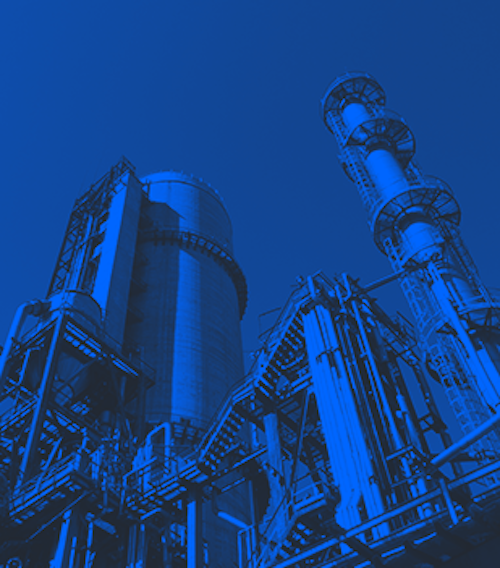Improving the Sustainability of Workplace Safety Processes in Critical Industries
In a world facing the pressing challenges of climate change and environmental degradation, the call for sustainable practices has never been more urgent. For critical industries such as oil and gas and manufacturing, the push for more sustainable practices is particularly urgent. Although crucial drivers in powering our society, these industries unfortunately often leave a hefty ecological footprint in their wake.
As the world acknowledges the need for collective responsibility in curbing pollution and promoting sustainability, it becomes essential for critical industries to step up and take on the mantle of change, not just to meet regulatory standards, but also to foster a healthier planet for generations to come.
An innovative approach to addressing the environmental impact of these industries is through the adoption of sustainable safety practices. Given the substantial risks associated with their operations, implementing environmentally friendly measures can lead to a positive change both for the safety of the environment and for personnel working in critical sectors.
In this blog, we will explore three ways organisations within critical industries can implement more sustainable safety practices to achieve zero incidents and zero emissions.
Source Workplace Safety Tags Made from Recyclable Materials
Safety tagging plays a crucial role in critical industries and processes to ensure the well-being of workers, prevent accidents, and maintain the integrity of equipment and infrastructure. It involves the use of tags or labels to communicate important safety information, warnings, and instructions in hazardous environments. Unfortunately, many traditional safety tags are often made from non-recyclable materials like PVC, which can have a significant negative impact on the environment.
To address this issue and promote sustainability in critical industries and processes, the adoption of safety tags made from recyclable materials is a prudent solution. By choosing recyclable materials for safety tagging, industries can uphold their commitment to worker well-being and equipment integrity while contributing to waste reduction and resource conservation.

Invest in Durable Safety Solutions
Safety solutions such as tags and signs go through a lot of wear and tear, especially in critical industries where workplaces are often exposed to harsh environments such as direct sunlight, extreme heat, or frost. In these conditions, cheaper, less durable materials could become unreadable or snap away from their fixings, resulting in an accumulation of waste going to landfills and important safety messages becoming compromised, putting the safety of personnel at risk.
To ensure the continued reliability of safety processes and reduce unnecessary waste, organisations should invest in durable and long-lasting safety solutions. For example, look for safety tags or signs that are made with ISO 4892-2:2013 tested materials.
If safety solutions are ISO 4892-2:2013 tested, it means they are suitable for use in harsh conditions and can withstand tough climates without breaking down or becoming unusable. This ensures safety messages remain visible and durable at all times and reduces the amount of waste sent to landfills – ultimately improving the overall sustainability of safety processes.
Source Safety Solutions from Eco-Conscious Suppliers and Manufacturers
When seeking safety solutions, the challenge lies in identifying manufacturers or suppliers that offer a combination of dependability and environmental consciousness. However, there is a viable solution - consider sourcing safety solutions from companies that align with eco-conscious practices. For instance, selecting a manufacturer or supplier accredited with ISO 14001, a standard for environmental management systems, ensures that their dedication to sustainability is in harmony with your environmental objectives.
Or another excellent option is to source safety solutions from a Zero-to-Landfill company. Such companies have made a dedicated effort to minimise waste generation and maximise recycling, ensuring that no waste ends up in landfills. By partnering with these eco-conscious suppliers, organisations can not only rely on dependable safety products but also contribute to the reduction of their environmental footprint.
At REGALTAGS, we have certificates to demonstrate our commitment to continually improving every area of our business. As accredited with ISO 9001 and ISO 14001, we have annual third-party audits to ensure our Quality and Environmental Management Systems exceed the industry expectations – ensuring organisations within critical sectors achieve zero incidents and zero emissions.
Sustainable Workplace Safety Solutions from REGALTAGS
At REGALTAGS, our approach to safety is simple. With a focus on design, durability, and eco-conscious practices, we deliver solutions that enhance the sustainability and productivity of your operations.
From isolation tags to flange tags, tough signs, and more, we have your needs covered. Our complete range of safety solutions is suitable for use in the harshest of environments.
If you’d like to find out more about how we can help with your safety processes, contact our friendly team at REGALTAGS® today. We’re more than happy to answer any questions you have.
Subscribe
Join 10,000+ others receiving our monthly updates. Free Tag knowledge delivered straight to your inbox.






